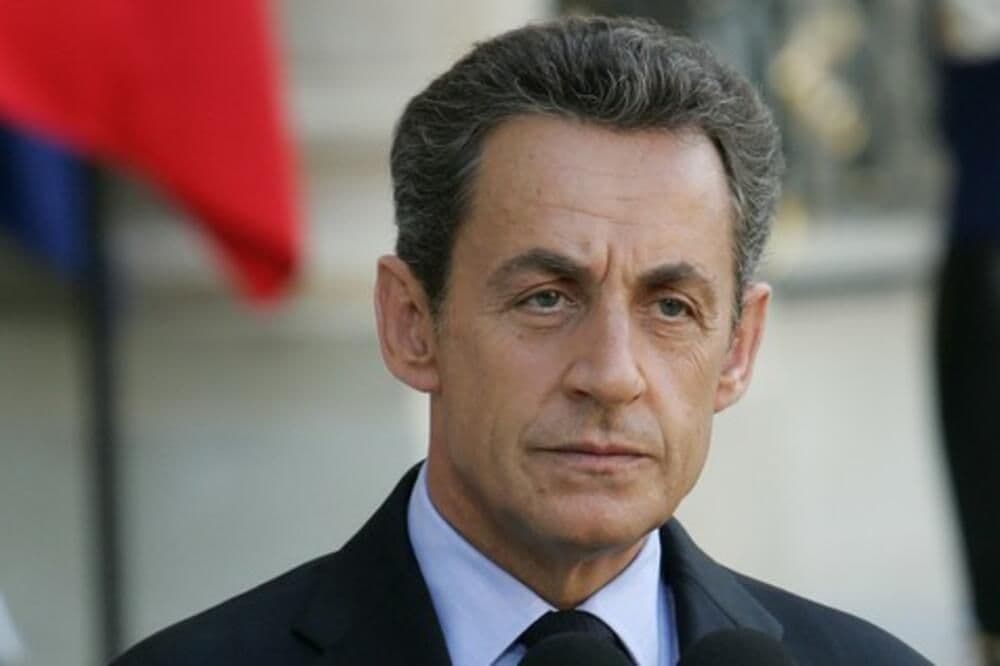Top Stories
Sarkozy Sentenced to Five Years for Campaign Corruption

Former French President Nicolas Sarkozy has been sentenced to five years in prison, with the execution of the sentence deferred, after being found guilty of complicity in a criminal organization. This ruling comes from a Paris court over allegations of illicit financing linked to his 2007 presidential campaign, as reported by BFMTV. The court’s decision marks a significant moment in French political history, with Sarkozy becoming the first former president to be convicted for accepting foreign funds for electoral purposes.
The court determined that Sarkozy was guilty of “criminal conspiracy” between 2005 and 2007. While prosecutors had sought a seven-year prison term, the presiding judge, Nathalie Gavarino, noted that Sarkozy had allowed close associates to seek financial support from the Libyan authorities, then led by Moamer Gaddafi. Despite the conviction, Sarkozy was acquitted of charges related to misappropriation of public funds and passive corruption.
In addition to Sarkozy, the trial implicated 11 other individuals, including three former ministers. Among them was Klod Gean, who served as Sarkozy’s campaign chief. Gean was also found guilty of criminal conspiracy and passive corruption, receiving a six-year prison sentence, later converted to a fine of €250,000 due to health considerations.
Another key figure, former Minister Brice Hortefeux, was convicted of criminal conspiracy, facing a two-year sentence that may be converted to house arrest with electronic monitoring. Other defendants included intermediary Alexandre Djouhri, sentenced to six years in prison, and banker Wahib Naser, who received a four-year term along with a fine of €2 million.
The charges stem from allegations made in 2011, when Libyan state media claimed that millions of euros were invested in Sarkozy’s campaign. The court’s findings reflect the broader implications of foreign influence in political financing, raising questions about accountability in electoral processes.
Sarkozy, who appeared in court accompanied by his wife, Carla Bruni, and their three sons, has consistently denied all allegations against him. Following the ruling, he retains the right to appeal, a process that may delay any immediate jail time.
As this case unfolds, it highlights the ongoing scrutiny of political financing in France, as well as the legal repercussions that can arise from alleged misconduct. The implications of this ruling may resonate beyond Sarkozy, impacting future political campaigns and the regulatory environment surrounding campaign finance.
-

 Entertainment3 months ago
Entertainment3 months agoAnn Ming Reflects on ITV’s ‘I Fought the Law’ Drama
-

 Entertainment4 months ago
Entertainment4 months agoKate Garraway Sells £2 Million Home Amid Financial Struggles
-

 Health3 months ago
Health3 months agoKatie Price Faces New Health Concerns After Cancer Symptoms Resurface
-

 Entertainment3 months ago
Entertainment3 months agoCoronation Street’s Carl Webster Faces Trouble with New Affairs
-

 Entertainment3 months ago
Entertainment3 months agoWhere is Tinder Swindler Simon Leviev? Latest Updates Revealed
-

 Entertainment4 months ago
Entertainment4 months agoMarkiplier Addresses AI Controversy During Livestream Response
-

 Science1 month ago
Science1 month agoBrian Cox Addresses Claims of Alien Probe in 3I/ATLAS Discovery
-

 World2 weeks ago
World2 weeks agoBailey Announces Heartbreaking Split from Rebecca After Reunion
-

 Health4 months ago
Health4 months agoCarol Vorderman Reflects on Health Scare and Family Support
-

 Entertainment4 months ago
Entertainment4 months agoKim Cattrall Posts Cryptic Message After HBO’s Sequel Cancellation
-

 Entertainment2 weeks ago
Entertainment2 weeks agoCoronation Street Fans React as Todd Faces Heartbreaking Choice
-

 Entertainment3 months ago
Entertainment3 months agoOlivia Attwood Opens Up About Fallout with Former Best Friend



















